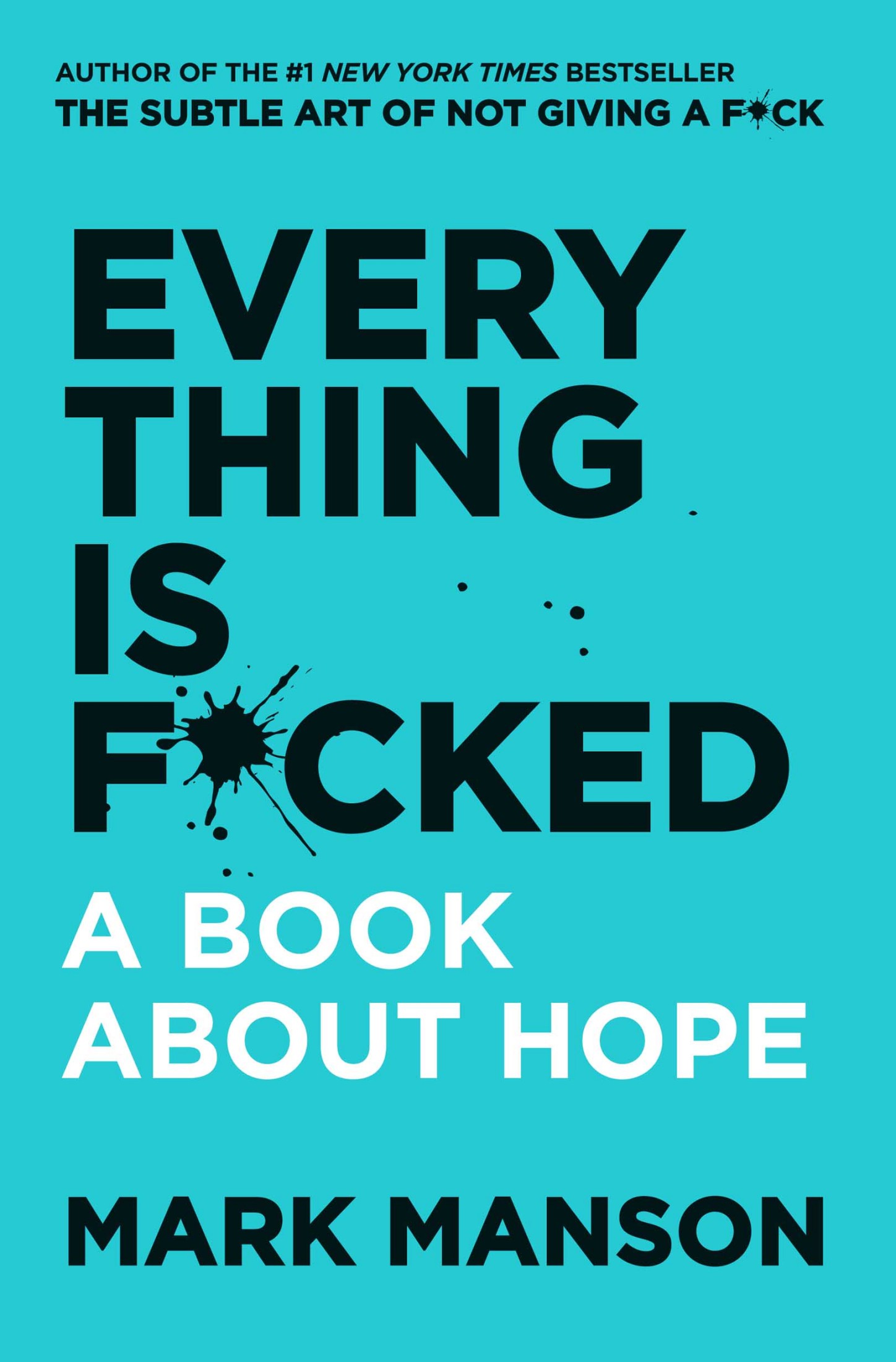
Everything Is F*cked
A Book About Hope
کتاب های مرتبط
- اطلاعات
- نقد و بررسی
- دیدگاه کاربران
نقد و بررسی

The popular blogger and author delivers an entertaining and thought-provoking third book about the importance of being hopeful in terrible times. "We are a culture and a people in need of hope," writes Manson (The Subtle Art of Not Giving a F*ck: A Counterintuitive Approach to Living a Good Life, 2016, etc.). With an appealing combination of gritty humor and straightforward prose, the author floats the idea of drawing strength and hope from a myriad of sources in order to tolerate the "incomprehensibility of your existence." He broadens and illuminates his concepts through a series of hypothetical scenarios based in contemporary reality. At the dark heart of Manson's guide is the "Uncomfortable Truth," which reiterates our cosmic insignificance and the inevitability of death, whether we blindly ignore or blissfully embrace it. The author establishes this harsh sentiment early on, creating a firm foundation for examining the current crisis of hope, how we got here, and what it means on a larger scale. Manson's referential text probes the heroism of Auschwitz infiltrator Witold Pilecki and the work of Isaac Newton, Nietzsche, Einstein, and Immanuel Kant, as the author explores the mechanics of how hope is created and maintained through self-control and community. Though Manson takes many serpentine intellectual detours, his dark-humored wit and blunt prose are both informative and engaging. He is at his most convincing in his discussions about the fallibility of religious beliefs, the modern world's numerous shortcomings, deliberations over the "Feeling Brain" versus the "Thinking Brain," and the importance of striking a happy medium between overindulging in and repressing emotions. Although we live in a "couch-potato-pundit era of tweetstorms and outrage porn," writes Manson, hope springs eternal through the magic salves of self-awareness, rational thinking, and even pain, which is "at the heart of all emotion." Clever and accessibly conversational, Manson reminds us to chill out, not sweat the small stuff, and keep hope for a better world alive.
COPYRIGHT(2019) Kirkus Reviews, ALL RIGHTS RESERVED. (Online Review)

May 27, 2019
Manson follows up his bestseller The Subtle Art of Not Giving a F*ck with this equally irreverent and inspiring work on hopefulness. “Our psyche needs hope the way a fish needs water,” he opines, adding that “hopelessness is the root of all anxiety, mental illness and depression.” In order to build and maintain hope, he writes, three things are required: a sense of control, belief in the value of something, and community. Manson argues that each person has a thinking brain (one that is conscientious, accurate, and impartial), as well as a feeling brain (one based on emotion), and that one’s emotions are truly in control of everything. Learning how to navigate the relationship between emotional response and action, he says, is the key. He believes that people have been conditioned to feel anxious by the pace of progress, but that if a sense of control can be re-formed, then hope will come. As a (rather tongue-in-cheek) example, he suggests that readers start their own religion, a practice involving large amounts of control, strong values, and a community. After spending the first half of his book explaining the importance of hope, Manson uses the second half to explore the horror of a world without hope, where people feel disconnected and undervalued, and terror attacks and the threat of climate change are but two worrisome global trends. This smart work should appeal to any anxious reader looking to cultivate strategies for optimism.

























دیدگاه کاربران